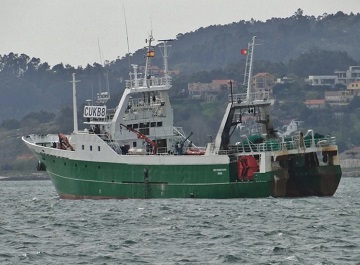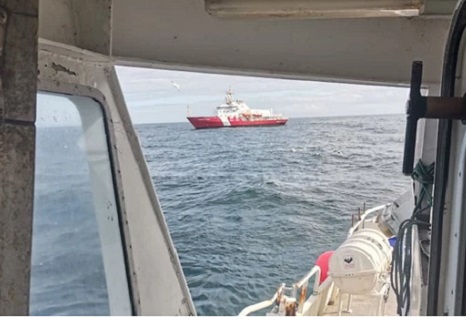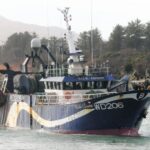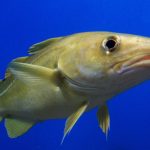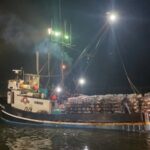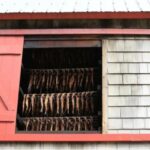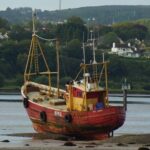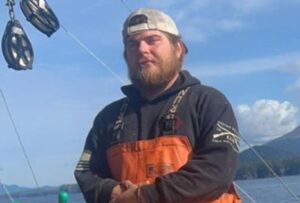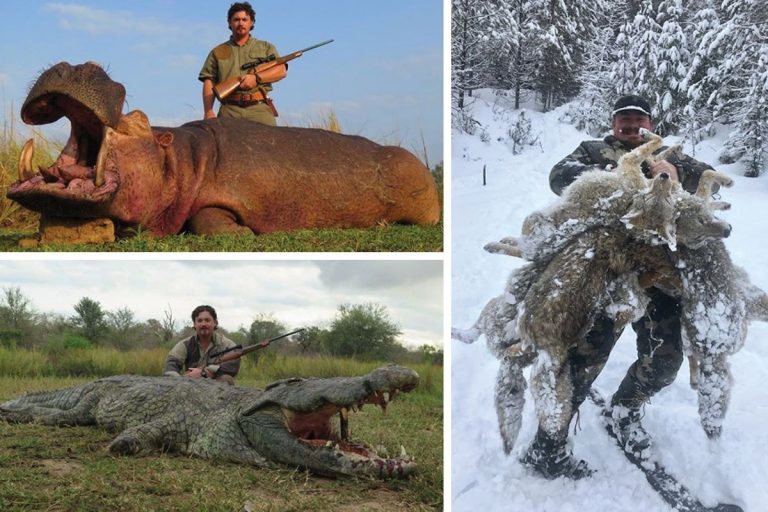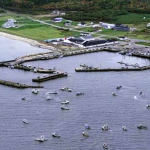Tag Archives: NAFO

A long time coming; Fish plant in Arnold’s Cove processes the first NL-caught northern cod since 1992 moratorium
There was no shortage of excitement at the fish plant in Arnold’s Cove on Thursday, Feb. 27, 2025, as the Icewater Seafoods processed its first offshore northern cod caught by Newfoundland and Labrador’s fleet since 1992. That was the year the commercial offshore fishery for northern cod came to a grinding halt under the moratorium imposed by the federal Department of Fisheries and Oceans (DFO). On Thursday, Capt. Peter Melvin and his 29-person crew from the Katsheshuk II, one of Ocean Choice International’s two offshore groundfish vessels, landed offshore Northern cod for the first time at the Icewater Seafoods plant. The crew was proud to be the first and we were encouraged by what we saw. The catch rates were good, we had clean catch with little to no bycatch and the fish were healthy. Photos, more, >>CLICK TO READ<< 16:45
DFO Affirms Canada’s Control Over Northern Cod Management
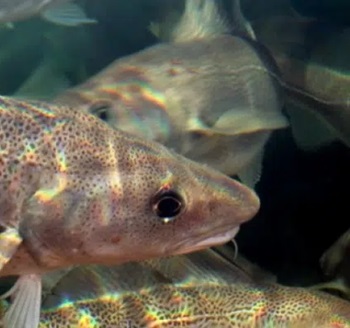 The Department of Fisheries and Oceans is weighing in following concerns raised about northern cod management by provincial fisheries minister Gerry Byrne. A recent EU news release suggested that North Atlantic Fishery Organization (NAFO) was making the management decisions when it came to northern cod, but DFO says there is no debate that Canada manages the stock. According to the federal department, Canada alone completes the scientific assessment of the stock and sets the annual total allowable catch. more, >>CLICK TO READ<< 07:31
The Department of Fisheries and Oceans is weighing in following concerns raised about northern cod management by provincial fisheries minister Gerry Byrne. A recent EU news release suggested that North Atlantic Fishery Organization (NAFO) was making the management decisions when it came to northern cod, but DFO says there is no debate that Canada manages the stock. According to the federal department, Canada alone completes the scientific assessment of the stock and sets the annual total allowable catch. more, >>CLICK TO READ<< 07:31
Fisheries Minister Taken Aback by EU Boast that NAFO Has Management of Northern Cod Fishery
 The province’s fisheries minister is encouraging Newfoundlanders and Labradorians to rally for joint management of the stocks off the province’s coast after learning that NAFO has taken control of management of the northern cod fishery. A recent European Union release following Northwest Atlantic Fisheries Organization meetings in Halifax indicates that based on an EU-Canada proposal on northern cod, NAFO “reopened the fishery and established a revised sharing arrangement.” It goes on to say that “it was fair and necessary to increase the EU share to reflect the current composition of the EU.” The release also indicates that NAFO is increasing fishing opportunities for 3M cod outside Canada’s 200 mile limit. more, >>CLICK TO READ<< 09:08
The province’s fisheries minister is encouraging Newfoundlanders and Labradorians to rally for joint management of the stocks off the province’s coast after learning that NAFO has taken control of management of the northern cod fishery. A recent European Union release following Northwest Atlantic Fisheries Organization meetings in Halifax indicates that based on an EU-Canada proposal on northern cod, NAFO “reopened the fishery and established a revised sharing arrangement.” It goes on to say that “it was fair and necessary to increase the EU share to reflect the current composition of the EU.” The release also indicates that NAFO is increasing fishing opportunities for 3M cod outside Canada’s 200 mile limit. more, >>CLICK TO READ<< 09:08
NAFO Annual Meeting 2024: Key Decisions on Cod and Redfish Stocks
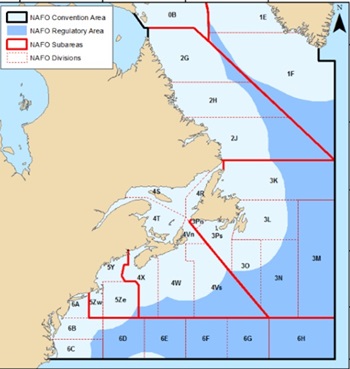 A joint proposal from the EU and Canada led to the reopening of the fishery for Northern cod in Divisions 2J, 3K, and 3L, with a revised sharing arrangement. This update was necessary, as the previous provisions had been in place since 1991. The EU’s share was increased to reflect its current composition, ensuring a fairer allocation of fishing rights. Additionally, fishing opportunities for 3M cod were increased, with existing technical measures maintained to protect the stock. NAFO’s decision rewards the fishing sector’s conservation efforts by increasing opportunities while maintaining caution to safeguard stock sustainability. A joint proposal from the EU and Canada led to the reopening of the fishery for Northern cod in Divisions 2J, 3K, and 3L, with a revised sharing arrangement. more, >>CLICK TO READ<< 08:03
A joint proposal from the EU and Canada led to the reopening of the fishery for Northern cod in Divisions 2J, 3K, and 3L, with a revised sharing arrangement. This update was necessary, as the previous provisions had been in place since 1991. The EU’s share was increased to reflect its current composition, ensuring a fairer allocation of fishing rights. Additionally, fishing opportunities for 3M cod were increased, with existing technical measures maintained to protect the stock. NAFO’s decision rewards the fishing sector’s conservation efforts by increasing opportunities while maintaining caution to safeguard stock sustainability. A joint proposal from the EU and Canada led to the reopening of the fishery for Northern cod in Divisions 2J, 3K, and 3L, with a revised sharing arrangement. more, >>CLICK TO READ<< 08:03
Fishing group, N.S. fisherman happy with Canada-France halibut deal
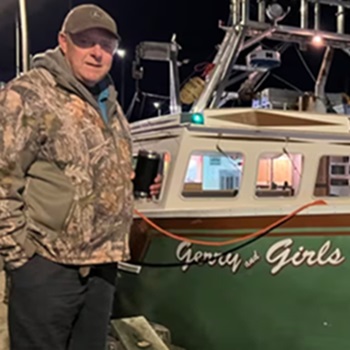 Canada and France have reached a deal to try to end a long-simmering dispute over halibut fishing on Canada’s Atlantic coast. In exchange for a three per cent share of the Canadian quota, French fishing vessels will fish outside Canadian waters and agree to have their catch monitored. According to Shelburne fisherman Gary Dedrick, French fishermen have been harvesting in Canadian waters outside the designated French fishing zone surrounding St-Pierre-Miquelon, France’s eight small islands off Newfoundland’s southern coast, and not limiting their catches. “They will be allowed to fish Atlantic halibut in their own territory and also outside 200 miles, but they won’t be able to fish in Canadian waters,” said Lapointe, who is looking to federal authorities to increase monitoring and catch reporting now that there’s a formal agreement. more, >>CLICK TO READ<< 14: 19
Canada and France have reached a deal to try to end a long-simmering dispute over halibut fishing on Canada’s Atlantic coast. In exchange for a three per cent share of the Canadian quota, French fishing vessels will fish outside Canadian waters and agree to have their catch monitored. According to Shelburne fisherman Gary Dedrick, French fishermen have been harvesting in Canadian waters outside the designated French fishing zone surrounding St-Pierre-Miquelon, France’s eight small islands off Newfoundland’s southern coast, and not limiting their catches. “They will be allowed to fish Atlantic halibut in their own territory and also outside 200 miles, but they won’t be able to fish in Canadian waters,” said Lapointe, who is looking to federal authorities to increase monitoring and catch reporting now that there’s a formal agreement. more, >>CLICK TO READ<< 14: 19
Canada announces deal with France on contentious Atlantic halibut fishery
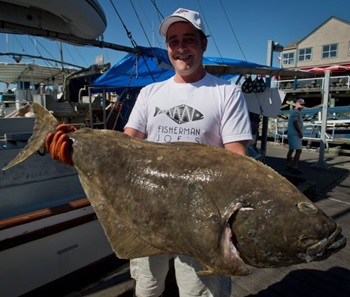 Months of negotiations have resulted in an agreement between Canada and France allowing fishers from a tiny archipelago near Newfoundland a portion of the annual Atlantic halibut catch, officials announced Monday. Fishers from the French territory of St-Pierre-Miquelon will be allowed three per cent of the total allowable catch, which is set each year by Canada, the federal Fisheries Department said in a statement. Ihe department has been working with France to reach such an agreement since 2016, the department said. “I am confident that we’ve reached an equitable agreement that will ensure the long-term health of the Atlantic halibut stock while supporting the economies and coastal communities of both Canada and France,” Fisheries Minister Diane Lebouthillie said. more, CLICK TO READ<< 15:02
Months of negotiations have resulted in an agreement between Canada and France allowing fishers from a tiny archipelago near Newfoundland a portion of the annual Atlantic halibut catch, officials announced Monday. Fishers from the French territory of St-Pierre-Miquelon will be allowed three per cent of the total allowable catch, which is set each year by Canada, the federal Fisheries Department said in a statement. Ihe department has been working with France to reach such an agreement since 2016, the department said. “I am confident that we’ve reached an equitable agreement that will ensure the long-term health of the Atlantic halibut stock while supporting the economies and coastal communities of both Canada and France,” Fisheries Minister Diane Lebouthillie said. more, CLICK TO READ<< 15:02
Lebouthillier Ignored Scientific Advice on Reopening Cod Fishery
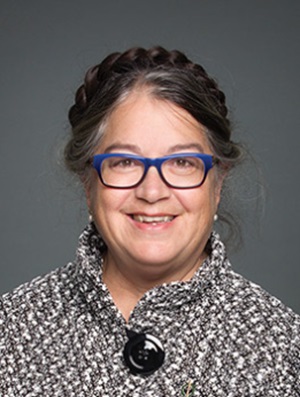 Federal Fisheries Minister Diane Lebouthillier faced criticism for disregarding advice from the Department of Fisheries and Oceans (DFO) when she reopened the commercial cod fishery off Newfoundland and Labrador earlier this year, a decision largely influenced by political considerations. Patrick Butler of Radio Canada reports that a DFO briefing note from 09 May 2024 uncovered by reveals that the department recommended maintaining the longstanding moratorium on northern cod, citing scientific evidence of the stock’s vulnerability. However, political advisors within the minister’s office advocated for reopening the fishery and increasing cod quotas, viewing it as a “political victory.” Senior policy advisor Paul Carrigan expressed concerns from DFO staff about the risk of stock decline due to higher quotas and the return of offshore vessels. The department had recommended keeping the total allowable catch at 13,000 tonnes, the same level as in 2022 and 2023, while maintaining a limited stewardship fishery solely for inshore harvesters. more, >>CLICK TO READ<< 12:05
Federal Fisheries Minister Diane Lebouthillier faced criticism for disregarding advice from the Department of Fisheries and Oceans (DFO) when she reopened the commercial cod fishery off Newfoundland and Labrador earlier this year, a decision largely influenced by political considerations. Patrick Butler of Radio Canada reports that a DFO briefing note from 09 May 2024 uncovered by reveals that the department recommended maintaining the longstanding moratorium on northern cod, citing scientific evidence of the stock’s vulnerability. However, political advisors within the minister’s office advocated for reopening the fishery and increasing cod quotas, viewing it as a “political victory.” Senior policy advisor Paul Carrigan expressed concerns from DFO staff about the risk of stock decline due to higher quotas and the return of offshore vessels. The department had recommended keeping the total allowable catch at 13,000 tonnes, the same level as in 2022 and 2023, while maintaining a limited stewardship fishery solely for inshore harvesters. more, >>CLICK TO READ<< 12:05
NAFO Moving Forward with Offshore Dragger Access Despite Legal Injunction and Historical Agreement for Northern Cod
 Despite vocal opposition from industry and environmental groups, the North Atlantic Fisheries Organization (NAFO) is making strides towards allowing international and domestic offshore draggers back on the Northern cod grounds as early as this fall. The European Union (EU) is awaiting approval of their harvesting proposal from the NAFO Commission to get access to the fishery. “It is our strong opinion that the NAFO Commission should defer reopening the offshore allocation for the 2J3KL northern cod fishery. The reopening of the commercial cod fishery was done under poor faith by Minister Lebouthillier and Prime Minster Justin Trudeau; with both went against the advice of science, environment and industry, and also broke a four-decade commitment to our province,” says Pretty. “By lifting the 32-year moratorium on commercial fishing on June 26, 2024, the Government of Canada is further corporatizing public resources, limiting the economic sustainability of coastal communities, and breaking a decades long promise to the province of Newfoundland and Labrador,” Pretty explains. more, >>CLICK TO READ<<07:50
Despite vocal opposition from industry and environmental groups, the North Atlantic Fisheries Organization (NAFO) is making strides towards allowing international and domestic offshore draggers back on the Northern cod grounds as early as this fall. The European Union (EU) is awaiting approval of their harvesting proposal from the NAFO Commission to get access to the fishery. “It is our strong opinion that the NAFO Commission should defer reopening the offshore allocation for the 2J3KL northern cod fishery. The reopening of the commercial cod fishery was done under poor faith by Minister Lebouthillier and Prime Minster Justin Trudeau; with both went against the advice of science, environment and industry, and also broke a four-decade commitment to our province,” says Pretty. “By lifting the 32-year moratorium on commercial fishing on June 26, 2024, the Government of Canada is further corporatizing public resources, limiting the economic sustainability of coastal communities, and breaking a decades long promise to the province of Newfoundland and Labrador,” Pretty explains. more, >>CLICK TO READ<<07:50
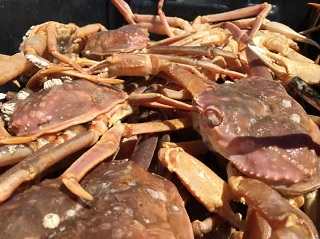
Opinion: Canada failed the N.L. fishery by Harvey Jarvis
The 2023 crash in the price of snow crab and the 1992 moratorium on northern cod have been talked about as the two major catastrophic events in the Newfoundland Labrador inshore fishery. While I totally agree that the two events have inflicted major damage on those who make a living from our ocean’s renewable resources, in my opinion, neither of them is THE major catastrophic event. In 1949, Newfoundland Labrador signed over control and management of the world’s richest renewable resources to Canada. While Canada was supposed to manage those resources to produce maximum benefit to Newfoundland Labrador, the opposite has occurred. >click to read< 13:17
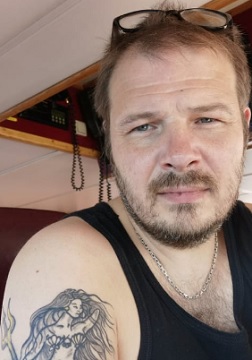
Captain of Faroese longliner cited 6 times in under year for halibut fishing violations on Grand Banks
For the sixth time since September, 2021 the captain of a Faroe Islands longliner has been issued a “notice of infringement” for an illegal fishing violation on the tail of the Grand Banks just outside Canadian waters. The notices were issued by DFO Fishery Officers during six separate inspections, once at sea and the remainder when the ship unloaded halibut in Bay Roberts. The “notices of infringement” against the captain of the Bordoyarnes were issued on Sept. 3rd and 16th, 2021, as well as May 17th, May 23rd, June 2nd, and July 1st of this year. DFO only recently updated its website on the most recent four infringements. The notices were all categorized as “serious” as they relate to the misreporting of catches (the four this year involved failing to maintain a logbook; the two from 2021 related to not properly recording discards) while the longliner was fishing halibut in fishing zone 3N on the tail of the Banks. After each inspection the longliner was allowed to return to the fishing grounds. photos, >click to read< 15:22
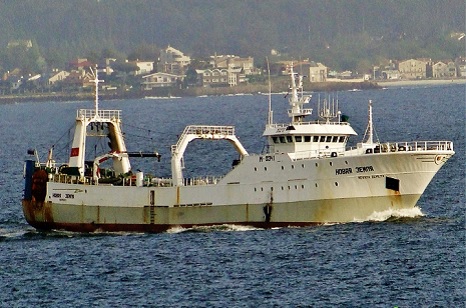
Russian head of NAFO has stepped down; country must be expelled/fish quotas transferred to Ukraine
Seaward Enterprises Association of Newfoundland and Labrador (SEA-NL) says it’s not enough that the Russian president and chair of the international organization that manages fish stock inside and outside Canada’s 200-mile limit has stepped down. The Russian Federation itself must be expelled from the Northwest Atlantic Fisheries Organization, with the country’s thousands of tonnes of quotas transferred to the Ukraine, another member of the 13-country organization. “Russia has violated every protocol on the face of the earth with its war on Ukraine, and its membership in NAFO should be cancelled outright, and its fish quotas transferred,” says Ryan Cleary, SEA-NL’s Executive Director. “Russian seafood is banned around the world, so it stands to reason that its offshore dragger fleet should not be permitted to fish as a NAFO-member country.” >click to read< 11:50

Should Russia be kicked out of NAFO; its trawler fleet banned from fishing outside Canadian waters?
There’s a case for it considering Canada has closed its airspace to Russian aircraft, and even a call by hockey legend Wayne Gretzky for Russia to be banned from the rescheduled World Juniors this summer in Alberta as a consequence for the country’s invasion of Ukraine. Offshore trawlers from the Russian Federation have access to thousands of tonnes of quota a year in the NAFO zone, including redfish, turbot, and skate. Kicking Russia out of NAFO and banning its offshore draggers from the area (if that’s possible), could be another message to President Vladimir Putin that his invasion of the Ukraine is unacceptable. Below are the NAFO quota tables for 2022, including a breakdown of fish set aside for Russia. >click to read< 09:34
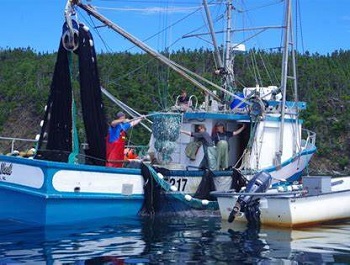
Capelin stocks aren’t climbing, could the fishery really face a moratorium in Newfoundland and Labrador?
The capelin stock in Newfoundland and Labrador has not had any sustained growth for 30 years, and the chances of a quick rebound are poor. Fran Mowbray, capelin biologist with Fisheries and Oceans (DFO), wouldn’t go as far as to say the stock could become extinct. “I don’t think we have enough evidence to say that. We are definitely concerned about the status of the stock right now. But worldwide, when forage species reach very low levels … it will take them an extremely long time to rebound.” >click to read< 19:15
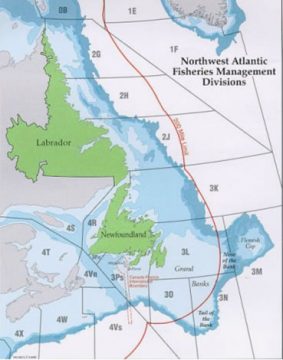
Annual NAFO meeting adopts measures for Greenland halibut, Flemish Cap cod
The 40th annual week-long meeting of the Northwest Atlantic Fisheries Organization (NAFO) ended on Friday in Tallinn, Estonia, where there were a number of measures accepted by Canada and other NAFO member contracting parties aimed at improving the monitoring and management of international fish stocks outside Canada’s 200-mile limit in the Northwest Atlantic. In addition to the traditional total allowable catch (TAC) and quota decisions made, other decisions included: >click to read<20:01

FISH-NL questions quiet reopening of Canadian ports to banned Faroese and Greenland trawlers
The Federation of Independent Sea Harvesters of Newfoundland and Labrador (FISH-NL) is calling on Ottawa to explain its decision almost a year ago to quietly reopen Canadian ports to trawlers from the Faroe Islands and Greenland that had been banned for overfishing northern shrimp. “Why exactly was the ban lifted, and why didn’t the federal government make the news public when the decision was made?” questions Ryan Cleary, President of FISH-NL. click here to read the press release 11:48
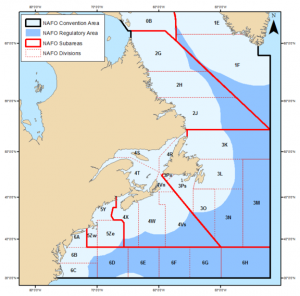
NOAA Seeking U.S. Commissioner to the Northwest Atlantic Fisheries Organization
NOAA Fisheries is seeking a U.S. citizen to serve a four-year term as a Commissioner representing the commercial fishing industry to the Northwest Atlantic Fisheries Organization (NAFO). NAFO is a regional fisheries management organization with 12 Contracting Parties that coordinates scientific study and cooperative management of the fisheries resources of the Northwest Atlantic Ocean, excluding salmon, tunas/marlins, whales, and sedentary species (e.g., shellfish). click here to read the press release 16:26
NAFO Meets For The First Time Under Modernized Convention – Significant Decisions Were Made
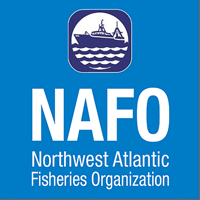 FOR IMMEDIATE RELEASE MONTRÉAL, QC, 22 SEPTEMBER 2017- The 39th Annual Meeting of the Northwest Atlantic Fisheries Organization (NAFO) took place from 18 to 22 September in Montréal, Canada. Over 180 delegates from 11 NAFO Contracting Parties were welcomed to Montréal by NAFO President, Stéphane Artano, and the Honourable Dominic LeBlanc, Minister of Fisheries, Oceans and the Canadian Coast Guard.,,, In addition, to the traditional total allowable catch (TAC)* and quota decisions, significant decisions were made regarding the following: agreed to a management strategy for Greenland halibut, agreed to relaunch its second performance review, agreed to protect the entire New England Seamount chain, agreed to a benchmark assessment of cod on the Flemish Cap in 2018. re-elected current President click here to read the press release 19:32
FOR IMMEDIATE RELEASE MONTRÉAL, QC, 22 SEPTEMBER 2017- The 39th Annual Meeting of the Northwest Atlantic Fisheries Organization (NAFO) took place from 18 to 22 September in Montréal, Canada. Over 180 delegates from 11 NAFO Contracting Parties were welcomed to Montréal by NAFO President, Stéphane Artano, and the Honourable Dominic LeBlanc, Minister of Fisheries, Oceans and the Canadian Coast Guard.,,, In addition, to the traditional total allowable catch (TAC)* and quota decisions, significant decisions were made regarding the following: agreed to a management strategy for Greenland halibut, agreed to relaunch its second performance review, agreed to protect the entire New England Seamount chain, agreed to a benchmark assessment of cod on the Flemish Cap in 2018. re-elected current President click here to read the press release 19:32
FISH-NL accuses FFAW-Unifor of hypocrisy, preaching ‘fair access’ for inshore harvesters while squeezing them out
 The Federation of Independent Sea Harvesters of Newfoundland and Labrador (FISH-NL) accuses the FFAW-Unifor of hypocrisy for preaching “fair access” to adjacent resources for inshore harvesters while, in practice, squeezing them out. “If the FFAW said the sun was splitting the rocks inshore harvesters would run for their oil clothes,” says Ryan Cleary, President of FISH-NL. “When it comes to the deck of a fishing boat the union’s credibility is non-existent.” The FFAW-Unifor issued a news release earlier today (click here) announcing the formation of a new committee focused on securing “fair and reasonable” access for the inshore fleet to fish resources adjacent to the province’s shores. In particular, access to groundfish species such as greysole, turbot, redfish and American plaice, quotas for many of which are managed by the Northwest Atlantic Fisheries Organization (NAFO), which oversees fishing in international waters outside Canada’s 200-mile limit. click here to read the press release 13:27
The Federation of Independent Sea Harvesters of Newfoundland and Labrador (FISH-NL) accuses the FFAW-Unifor of hypocrisy for preaching “fair access” to adjacent resources for inshore harvesters while, in practice, squeezing them out. “If the FFAW said the sun was splitting the rocks inshore harvesters would run for their oil clothes,” says Ryan Cleary, President of FISH-NL. “When it comes to the deck of a fishing boat the union’s credibility is non-existent.” The FFAW-Unifor issued a news release earlier today (click here) announcing the formation of a new committee focused on securing “fair and reasonable” access for the inshore fleet to fish resources adjacent to the province’s shores. In particular, access to groundfish species such as greysole, turbot, redfish and American plaice, quotas for many of which are managed by the Northwest Atlantic Fisheries Organization (NAFO), which oversees fishing in international waters outside Canada’s 200-mile limit. click here to read the press release 13:27
Canadian patrols and inspections of NAFO vessels off N.L. coast drop by 50%
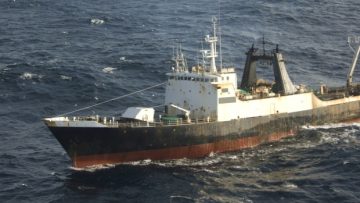 “An analysis of program data identified that patrol days and at-sea inspections in the NAFO regulatory area have decreased by 50 per cent between 2011 and 2015,” an internal DFO report published in March noted. Fisheries and Oceans officials told CBC News this week there are reasons for the reduction. There are now fewer foreign ships fishing in international waters outside Canada’s 200-mile territorial limit, and they are subject to more stringent reporting requirements. That, according to DFO, means fewer ships are necessary to monitor them. “We were comfortable making the decision back in 2012 to reduce our numbers of inspections, based on the fact that we had seen better compliance, smaller number of vessels,” said Allan MacLean, director general of the conservation and protection program at DFO. “It’s kind of like taking the cops off the Trans-Canada Highway on a long weekend, ” Earle McCurdy said. Read the rest here 11:31
“An analysis of program data identified that patrol days and at-sea inspections in the NAFO regulatory area have decreased by 50 per cent between 2011 and 2015,” an internal DFO report published in March noted. Fisheries and Oceans officials told CBC News this week there are reasons for the reduction. There are now fewer foreign ships fishing in international waters outside Canada’s 200-mile territorial limit, and they are subject to more stringent reporting requirements. That, according to DFO, means fewer ships are necessary to monitor them. “We were comfortable making the decision back in 2012 to reduce our numbers of inspections, based on the fact that we had seen better compliance, smaller number of vessels,” said Allan MacLean, director general of the conservation and protection program at DFO. “It’s kind of like taking the cops off the Trans-Canada Highway on a long weekend, ” Earle McCurdy said. Read the rest here 11:31
Letter: Follow the leaders in fisheries management – Gus Etchegary Portugal Cove-St. Philip’s
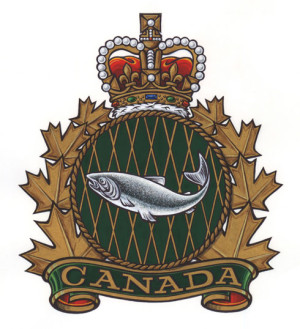 I have recently been in contact with former associates in Iceland, Norway and other advanced fishing nations on the status of their fishing industries, including fisheries management, processing technology, customer demands (for fresh, primary and secondary-processed fish products) and ongoing technical advances. I also questioned how these developments impact prices paid to fishermen and processing plant labour. As a result of impressive technical advances made in Iceland, Norway and Alaska in resource management and other key areas from processing higher quality fish and market development, their industries are now paying far higher prices to fishermen and higher wages to processors. Of even greater significance is the enormous contribution their fishing industry is making to their respective economies. Read the rest here 09:58
I have recently been in contact with former associates in Iceland, Norway and other advanced fishing nations on the status of their fishing industries, including fisheries management, processing technology, customer demands (for fresh, primary and secondary-processed fish products) and ongoing technical advances. I also questioned how these developments impact prices paid to fishermen and processing plant labour. As a result of impressive technical advances made in Iceland, Norway and Alaska in resource management and other key areas from processing higher quality fish and market development, their industries are now paying far higher prices to fishermen and higher wages to processors. Of even greater significance is the enormous contribution their fishing industry is making to their respective economies. Read the rest here 09:58
Objections registered to 3PS MSC cod certification will be heard by adjudicator
 A hearing on whether the Canadian southern Newfoundland cod fishery in 3 PS will get MSC certification was held on Feb. 10. The Southern Newfoundland cod fishery, in the Northwest Atlantic Fisheries Organization, has completed its MSC assessment, and the certifier has recommended certification for the major fishery gear types for both inshore and offshore cod. This certification has been in process since 2013, and is being strongly supported by WWF and the clients, Icewater Fisheries and Ocean Choice International. The certification is a requirement for sales of this cod into the European market. Read the rest here 13:55
A hearing on whether the Canadian southern Newfoundland cod fishery in 3 PS will get MSC certification was held on Feb. 10. The Southern Newfoundland cod fishery, in the Northwest Atlantic Fisheries Organization, has completed its MSC assessment, and the certifier has recommended certification for the major fishery gear types for both inshore and offshore cod. This certification has been in process since 2013, and is being strongly supported by WWF and the clients, Icewater Fisheries and Ocean Choice International. The certification is a requirement for sales of this cod into the European market. Read the rest here 13:55
Coldwater shrimp sector faces more cuts as NAFO closes Grand Banks
Further steep reductions in 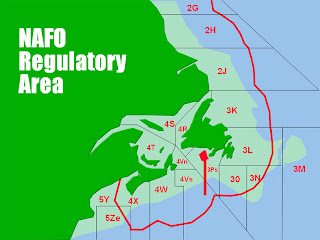 also known as northern shrimp, could come in 2015 in both the Grand Banks and Greenland. After years of declining catches in the Grand Banks, the North Atlantic Fisheries Organization (NAFO) has now recommended that all fishing in the Grand Banks be stopped next year. Read the rest here 08:30
also known as northern shrimp, could come in 2015 in both the Grand Banks and Greenland. After years of declining catches in the Grand Banks, the North Atlantic Fisheries Organization (NAFO) has now recommended that all fishing in the Grand Banks be stopped next year. Read the rest here 08:30
NAFO urged to protect deep sea species – Environmentalists working to mitigate damage done by bottom trawling
 “We want NAFO to mitigate the effects of bottom trawling and protect areas with coral and sponges,” said Susanna Fuller, marine conservation co-ordinator with Halifax’s Ecology Action Centre, in an interview Friday. Fuller, who is also treasurer of the 70-member Deep Sea Conservation Coalition, plans to be an observer at the 36th annual meeting of the organization that runs Monday through Friday in Vigo, Spain. Read the rest here 14:37
“We want NAFO to mitigate the effects of bottom trawling and protect areas with coral and sponges,” said Susanna Fuller, marine conservation co-ordinator with Halifax’s Ecology Action Centre, in an interview Friday. Fuller, who is also treasurer of the 70-member Deep Sea Conservation Coalition, plans to be an observer at the 36th annual meeting of the organization that runs Monday through Friday in Vigo, Spain. Read the rest here 14:37
NAFO to discuss TACs at upcoming 36th annual meeting in Spain
 Catch limits will take center stage at the North Atlantic Fisheries Organization’s meeting in Vigo, Spain, on Sept. 22-26, said the European fisheries and maritime affairs commission. Read the rest here 14:33
Catch limits will take center stage at the North Atlantic Fisheries Organization’s meeting in Vigo, Spain, on Sept. 22-26, said the European fisheries and maritime affairs commission. Read the rest here 14:33
Canadian offshore shrimp sector braces for cuts – “We’re all shocked by the conclusions of the science.,,
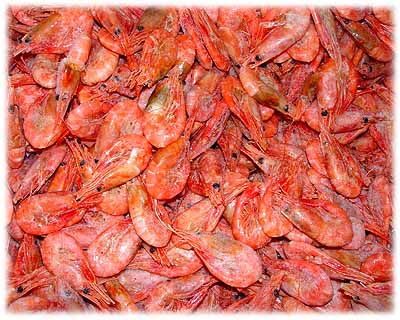 Canada’s inshore coldwater shrimp fishery is not the only one fearing large reductions in quotas for 2014. The offshore sector is also bracing itself after scientific surveys returned a surprisingly poor picture of the biomass in some of the key fishing areas, said some industry players. While they might not end up as big in terms of absolute volume, the cuts for the offshore sector could be much steeper proportionally. Read more here Undercurrent News 09:00
Canada’s inshore coldwater shrimp fishery is not the only one fearing large reductions in quotas for 2014. The offshore sector is also bracing itself after scientific surveys returned a surprisingly poor picture of the biomass in some of the key fishing areas, said some industry players. While they might not end up as big in terms of absolute volume, the cuts for the offshore sector could be much steeper proportionally. Read more here Undercurrent News 09:00






